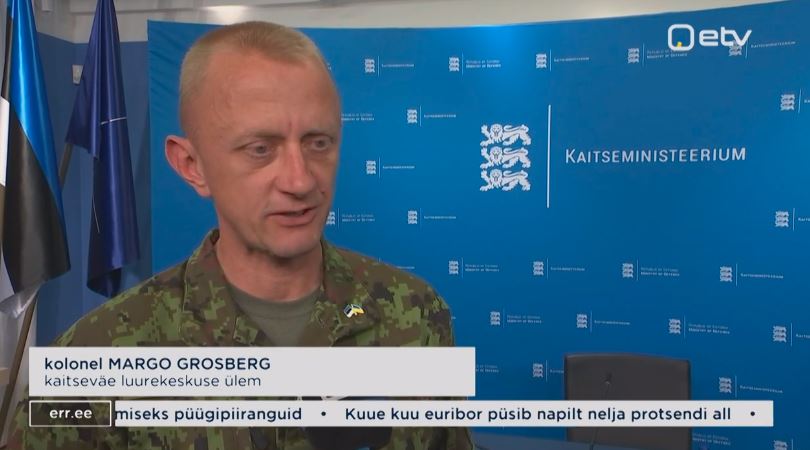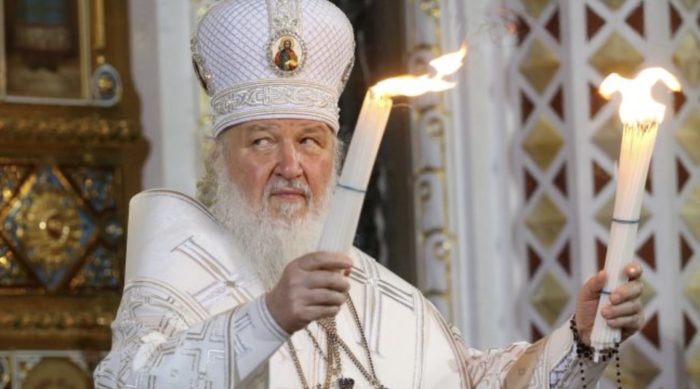Estonian military intelligence chief Colonel Margo Grosberg said Friday that Russian President Vladimir Putin has dismissed at least 28 senior Russian officers in an ongoing purge following the Wagner Group mutiny, ERR reported.
Speaking in Tallinn, Grosberg stated that 13 senior officers have been arrested and around 15 others removed from duty as part of the predictable shake-up meant to eliminate suspect commanders.
The purge has affected the defense ministry, military intelligence service GRU, and armed forces leadership following the public spat between the ministry and Wagner mercenary chief Yevgeny Prigozhin.
Among those removed are General Sergei Surovikin, commander of Russia’s Ukraine invasion forces, his deputy, a GRU general, and the deputy defense minister for logistics, Grosberg noted.
The move coincides with Wagner’s transfer of heavy weapons back to the Russian military in recent weeks. Some Wagner forces remain in Ukraine but are not participating in combat.
Grosberg assessed the officers were deemed no longer trustworthy as Putin works from a prepared list to consolidate control. However, the ongoing churn during the war further degrades Russia’s military leadership.
“This is not surprising, it was expected. Putin likely got his list ready and is now eliminating those who can no longer be considered reliable,” Grosberg remarked.
The purge of top brass critical of Russia’s faltering war performance indicates muted dissent and fragile morale despite Putin’s efforts to enforce loyalty within the officer corps. But the disruption jeopardizes operations as Russia scrambles to turn the tide in Ukraine.
Signs point to impending major gains for Ukraine’s forces
As well, Grosberg said that recent Ukrainian counteroffensive actions and indications of difficulties for Russia’s military suggest Ukrainian troops may soon see more substantial successes on the battlefield.
He pointed to Ukraine’s tactics of precision strikes on Russian command posts and logistics hubs, gains near Bakhmut, and a Russian general’s accounts signaling depletion of Russia's reserves. “This all shows the Ukrainians are close to major success,” Grosberg said.
Ukraine’s current preparatory attacks aim to strain Russian units in narrow sectors and find weaknesses for potential breakthroughs, he explained. Ukraine also strikes rear area transport hubs, logistics points, and command centers to the same effect.
Grosberg discussed Ukraine retaking key terrain north and south of Bakhmut, enabling artillery fire on the city and control of access roads. This has complicated supply efforts for Russian forces inside, he said. The months-long tying down of Russian paratroopers in Bakhmut also degrades elite troops Russia cannot rotate or reserve, impacting motivation. “A greater success should come there soon,” Grosberg stated.
In the Zaporizhzhia-Velika Novosilka sectors, Ukraine has expanded its area and continues precisely striking high-value targets, like the recent strike killing a Russian general in Berdiansk, he noted.
The dismissal of General Ivan Popov after he criticized the General Staff and described supply shortfalls also shows Russia’s reserves are depleted, preventing troop rotation, Grosberg said. While Russia has attacked most actively near Svatove-Kupiansk, tactical breakthrough remains elusive; the pressure likely aims to divert Ukrainian forces from Bakhmut, he assessed.
Grosberg also remarked the Wagner Group has transferred weapons to the Russian military in recent weeks, while repositioning into Belarus per sightings of bus convoys. He said post-Wagner mutiny purges continue predictably in Russia’s defense ministry. The shakeup eliminates suspect officers but degrades leadership amid the ongoing war, Grosberg concluded.
Related:





